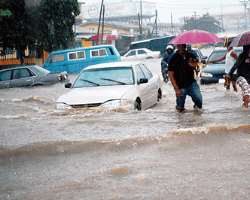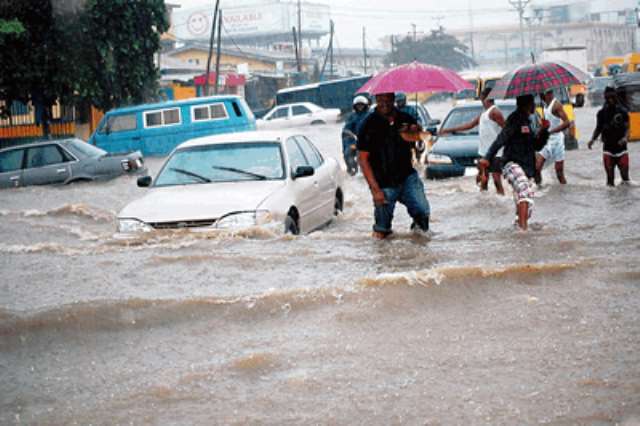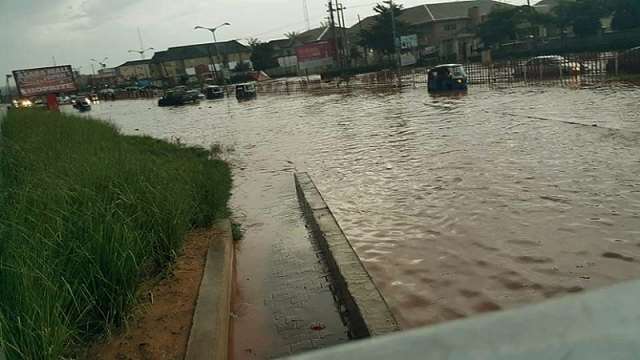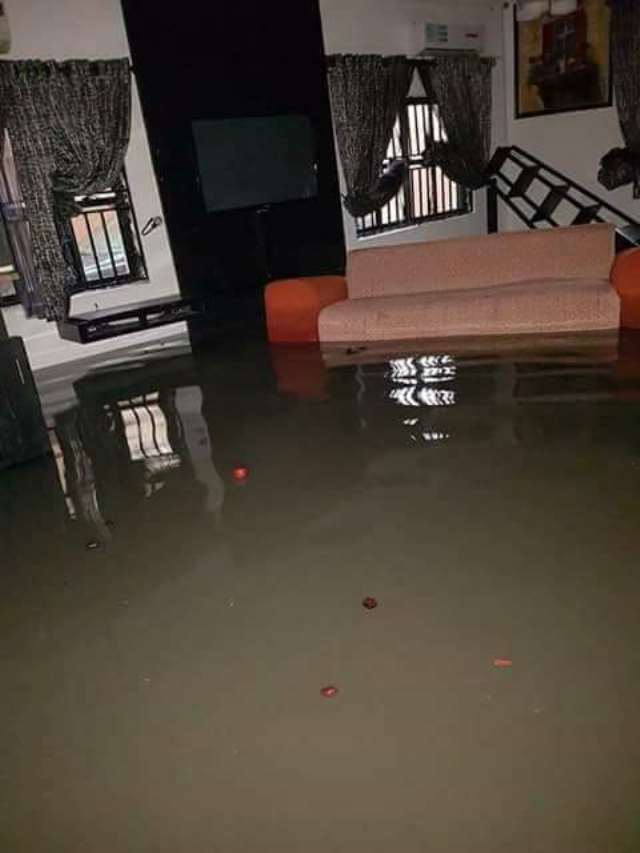OF A FLOOD FREE LAGOS...

Three weeks ago, Lagos Island and Lekki, more than others- was flooded, people lost their valuables and incurred unprecedented expenses and most importantly, the citizens, who the government should be protecting, had their safety compromised.
But with Lagos' drainage system mostly non-existent, flooding has become an experience that we normalized.
This was not the first time flooding had shut Lagos down.
On Thursday July 18, 1996, a single day of rain shut down the entire Lagos. The rain started early hours, by noon, the city was at standstill.
On July 10, 2011, another notorious flood took over Lagos to the extent that Governor Fashola had to declare public holiday for all schools the next day. And yet, here we are in 2017 in exactly the same situation- even worse and nothing has changed about how irresponsibly we handle tragedies!
The government, as usual, has blamed the floods on residents’ poor waste disposal habits which if we are honest is partly responsible. I'm aware that most Lagos streets are littered with waste which end up blocking street gutters and causing them to overflow, but poor city planning should also be held responsible and that is squarely the government's fault.
Unarguably, people may have built illegal houses without permits and no planned drainage systems, but someone is responsible for making sure those things never happen and I think we can all agree that the government really dropped the ball on that one. And because of its low-lying position next to the Atlantic Ocean and the fact that it is sinking slowly below sea level, combined with risks from climate change, drainage systems or not, Lagos will always be susceptible to severe floods.
In 2008, construction began on Eko Atlantic, the 5-mile new city that is supposed to be the saviour of Lagos' economy. Eko Atlantic is planned as a modern economic hub which will be home to a new financial district, luxurious apartments, a private power-grid, and a shopping boulevard in the image of New York’s Fifth Avenue. The city was projected to bring 250,000 new jobs and address a housing shortage brought on by a surging population.
Eko Atlantic was built by dredging and filling more than six miles worth of land in the Atlantic and the developers submitted their Environmental Impact Assessment three years after dredging had started on the site.
In 2012, a storm surge in the exact area of Eko Atlantic’s construction killed 16 people. So the developers are protecting the new city with “The Great Wall of Lagos”, a sea wall built around it to protect it from the surrounding Atlantic and its “worst storms.”
However, some experts believed that this wall, while protecting Eko Atlantic, will leave the rest of Lagos even more vulnerable to flood.
According to Dr. Alan Blumberg , a renowned climate change researcher: "What happens when you build a wall is that the approaching storm surge will come up to the wall, and it will move to the left or right of the wall, searching for a weakness or a low spot. If there are two islands close to each other, it may go to the island next door instead. With sea walls, you have to figure out what you’re protecting against."
If the critics are correct, Eko Atlantic poses potential danger and huge risk to Lagos. The areas around but outside Eko Atlantic are not only unprotected by the wall, but are lower in sea level than Eko Atlantic, leaving them even more vulnerable to effects of a storm, when it comes.
In the midst of this crisis, the state government is more concerned about turning Lagos into a smart city , but that's more than unrealistic when issues like climate change and poor infrastructure need urgent fixes.
Lagos floods are our reality now- one we have to deal with! And honestly, everyone has a part to play in this mess. The government, the businesses and agents building poorly-planned properties, Eko Atlantic, and we, Lagosians...



